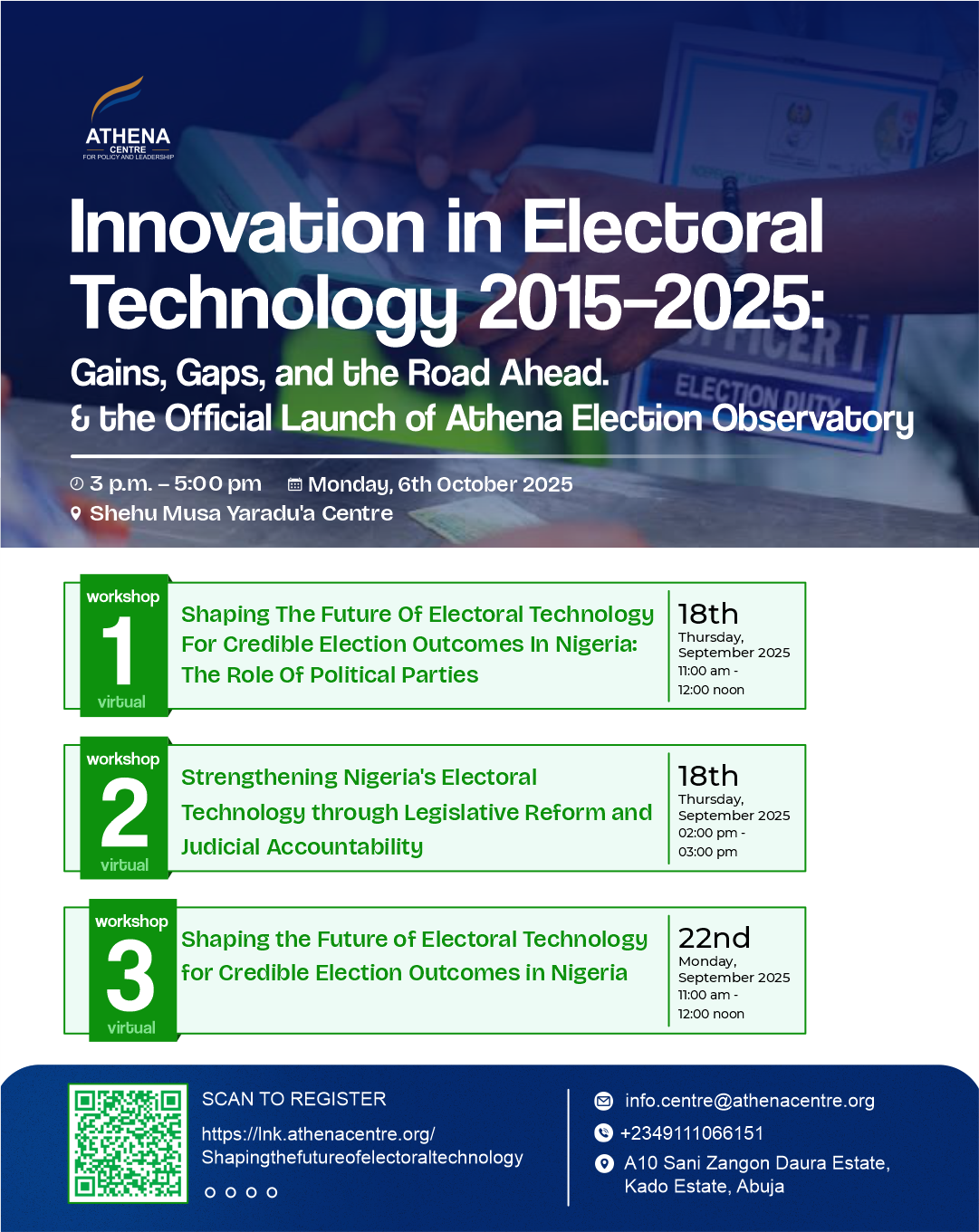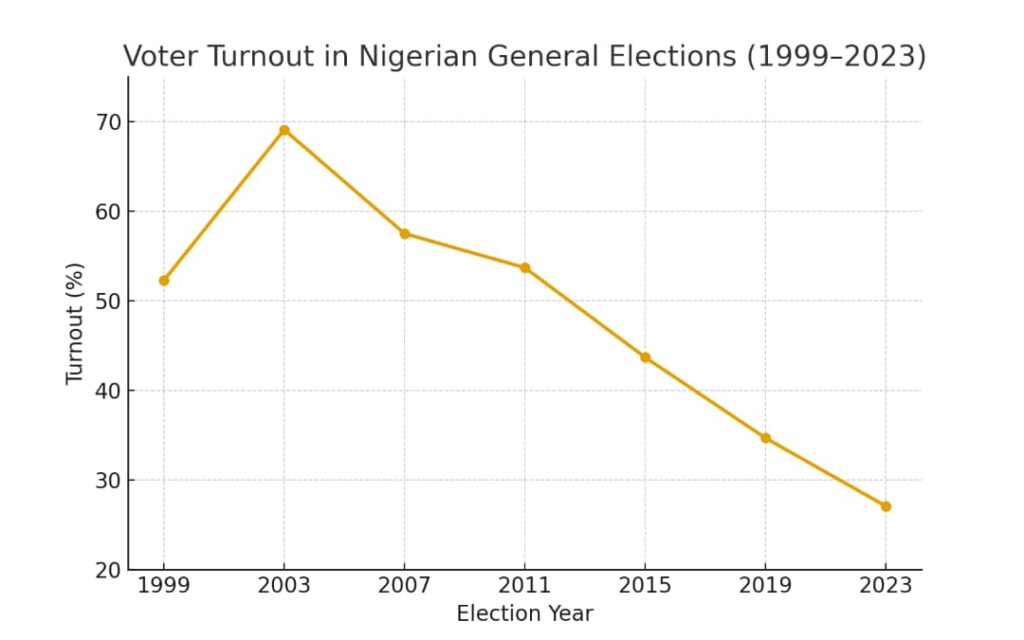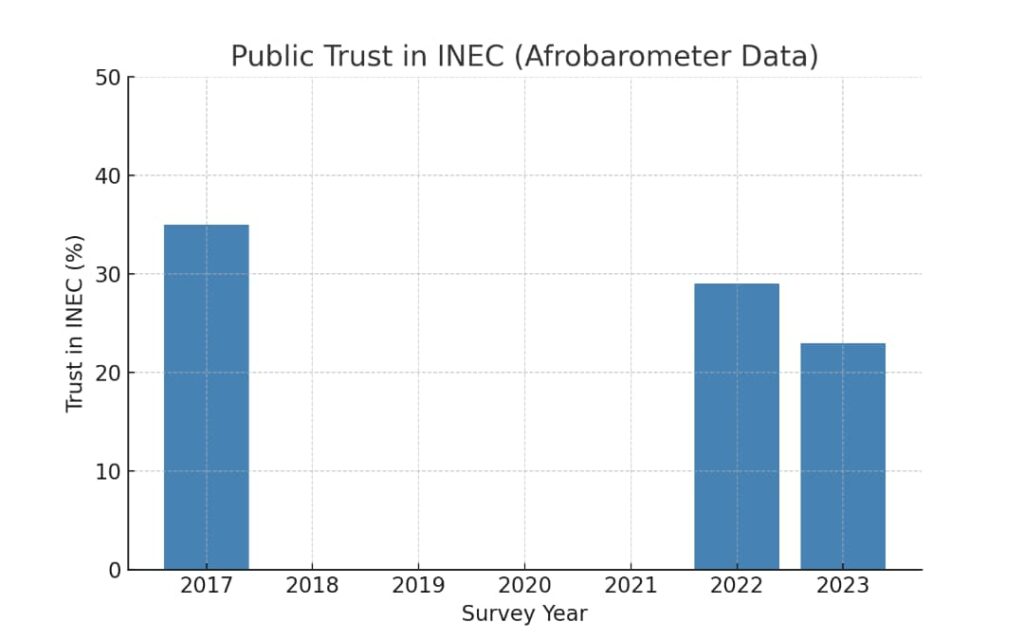
Innovation in Electoral Technology 2015–2025: Gains, Gaps, and the Road Ahead and Launch of the Athena Election Observatory
Monday 6 October 2025 at Shehu Yar’Adua Centre, Abuja 3 pm – 5 pm
Background: A Decade of Innovation
Over the last ten years, the Independent National Electoral Commission (INEC) has introduced landmark innovations designed to enhance transparency, efficiency, and credibility in Nigerian elections:
- Voter Registration: The INEC Voter Enrolment Device (IVED) and Continuous Voter Registration (CVR) Portal digitised enrolment and improved accessibility.
- Accreditation: The Bimodal Voter Accreditation System (BVAS) curbed impersonation and ghost voting, strengthening authentication.
- Results Management: The INEC Result Viewing Portal (IReV) gave Nigerians real-time access to polling unit results, a milestone for transparency.
- Institutional Reforms: Staff recruitment portals, observer accreditation systems, and virtual training platforms increased coordination and accountability.
Impact: These innovations have reshaped Nigeria’s electoral landscape. However, device malfunctions, delayed IReV uploads, opaque ward-level collation, and inconsistent data handling have hindered full credibility.
The Challenge: Declining Participation, Waning Trustf the Re-run
Despite these gains, Nigeria faces a crisis of citizen confidence.
- Voter Turnout Collapse: Participation fell from 69.1% in 2003 to just 27.1% in 2023—the lowest since 1999. In Lagos, turnout reached only 18.9%, reflecting widespread disengagement.
- Trust Deficit: According to Afrobarometer, only 23% of Nigerians express trust in INEC, while 78% have little or no trust—a 12-point decline since 2017.


This dual crisis—falling participation and declining trust—poses a legitimacy risk. Technology has delivered progress, but confidence in electoral outcomes will not return without deeper reform, accountability, and inclusiveness.
Why This Event Matters Now
2025 is a pivotal year. INEC’s decade of innovation (2015–2025) is ending, while preparations for the 2027 elections are beginning. This is a strategic window to:
- Independently review INEC’s 2015–2025 report, validating gains while confronting gaps.
- Present evidence from Athena’s post-election audits of by-elections since 2023.
- Amplify citizen voices through a nationwide opinion poll on electoral trust and reform demands.
- Convene political parties, CSOs, legislators, and development partners to build consensus on reforms.
- Institutionalise this work through the Athena Election Observatory (AEO)—a permanent platform to:
- Track elections globally.
- Conduct digital and forensic audits.
- Benchmark best practices.
- Serve as a trusted hub for reform advocacy.
Programme Design
Pre-Event Virtual Workshops
Shaping the Future of Electoral Technology: The Role of Political Parties
📅 Thursday, 18th September 2025 | 🕒 11:00 a.m. – 12:00 noon
Political parties share experiences with BVAS, IReV, and ward-level collation, and articulate reform demands.
Strengthening Electoral Technology through Legislative Reform and Judicial Accountability
📅 Thursday, 18th September 2025 | 🕒 2:00 p.m. – 3:00 p.m.
Lawmakers, INEC representatives, CSOs, and governorship candidates discuss gaps in the Electoral Act and judicial processes.
Civil Society and Development Partners’ Perspectives
📅 Monday, 22nd September 2025 | 🕒 11:00 a.m. – 12:00 noon
Insights from long-term observers and partners on practical reforms and short-term interventions ahead of 2027
Main Event (Plenary Session)
📅 Monday, 6th October 2025 | 🕒 3:00 – 5:00 p.m. | 📍 Shehu Musa Yar’Adua Centre, Abuja
Highlights:
- Special remarks by the INEC Chairman to address gaps, clarify grey areas, and outline INEC’s reform agenda.
- Presentation of Athena’s Independent Review of INEC’s Report (2015–2025).
- Release of a nationwide opinion poll on citizens’ trust and reform priorities.
- Consolidated recommendations from the workshops.
- Official Launch of the Athena Election Observatory.
Expected Outcomes
- Evidence-Based Review: A critical yet constructive assessment of INEC’s decade of technological innovation.
- Reform Roadmap: Policy recommendations drawn from political parties, civil society, and citizen voices.
- Stakeholder Alignment: Shared commitments to restore credibility ahead of 2027.
- Institutional Legacy: The AEO as a permanent, trusted platform for electoral audits and reform advocacy.
Broader Implications
Elections are the bedrock of democratic legitimacy. Yet, Nigeria is at risk of citizen disengagement if turnout continues to fall and trust remains low. Beyond technology, restoring confidence requires credible processes, accountable leadership, and transparent institutions.
The Athena Centre believes this program is a call to action: to consolidate past gains, close identified gaps, and ensure that the 2027 elections mark a turning point for democratic trust in Nigeria.
To attend: https://lnk.athenacentre.org/Shapingthefutureofelectoraltechnology
Organised by: Athena Centre for Policy and Leadership
📧 info.centre@athenacentre.org | 📞 +234 911 106 6151
SCAN THE QR CODE BELOW TO REGISTER

